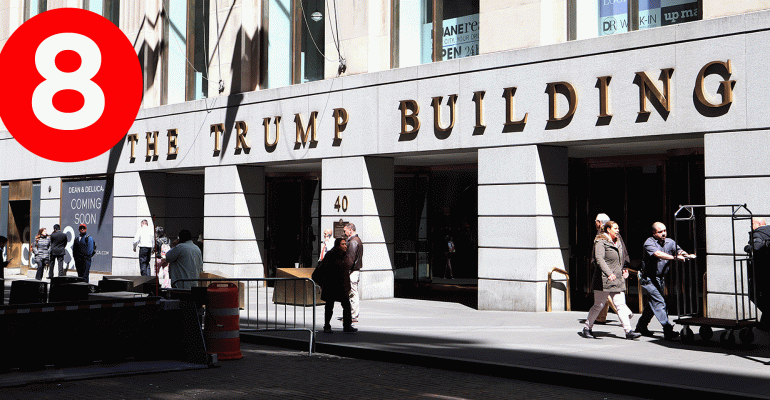- Tenants Sue Trump Over Scheme That Drove Up Their Rents “The new lawsuit, filed in State Supreme Court in Brooklyn, seeks the extra rent paid, plus interest and triple damages, for current and former tenants in more than 30 apartment complexes that belonged to the president’s father, Fred C. Trump. The mostly austere red brick buildings — with names like Beach Haven, Shore Haven and Park Briar — are spread across Brooklyn, Queens and Staten Island. The invoice-padding scheme ran from 1992 until the Trumps sold their father’s buildings in 2004, but the artificially increased rents remained in place.” (The New York Times)
- Houston Office Anxiety Intensifies As Biden Energy Policy Crystallizes “In Houston, energy companies and related service firms account for more than a third of office tenants. Biden's anticipated approach to onshore hydraulic fracturing and offshore drilling — both are likely to face a tougher regulatory environment over the next four years — is now ramping up anxiety in an already-stressed sector.” (Bisnow)
- Petco has filed to go public as consumers adopt more pets during the pandemic “The retailer has not yet shared the number of shares available or the pricing for its IPO. It plans to be listed on the Nasdaq with the ticker ‘WOOF.’ The company noted in its filing that the number of households with pets is expected to increase by 4% this year alone, driven by the pandemic. The jump in pet owners creates $4 billion in new demand for pet care products.” (CNBC)
- Marcus & Millichap’s New National Director of Retail Shares His Thoughts on Changes Ahead for the Investment Sales Sector “Daniel Taub is a well-known name in the retail real estate world. He spent most of his career with DLC Management, one of the nation’s largest open-air center owners, heading up leasing and eventually becoming president and chief operating officer of the company. In October, Taub joined Marcus & Millichap as senior vice president and national director of the firm’s retail division.” (Shopping Center Business)
- SEC Settles with Cheesecake Factory Over Covid-19 Effect Claims “The SEC said that the company in the spring filed materially false and misleading disclosures saying that locations were “operating sustainably.” Meanwhile, the SEC said, the company was losing about $6 million in cash weekly and only estimated it had around four months’ worth of cash left. The Cheesecake Factory agreed to a penalty of $125,000 and didn’t admit to the SEC’s findings, the regulator said Friday.” (The Wall Street Journal)
- AMC Entertainment Is Selling More Stock To Raise Cash, Survive Covid-19 “AMC Entertainment on Thursday filed with the SEC to sell up to 200 million shares as the embattled exhibitor seeks to keep its business afloat with the global pandemic dragging on. It could raise $844 million at an estimated offering price of $4.22 per share, based on trading Nov. 30, the filing said.” (Deadline)
- Commercial property owners seeing rates grow across lines “‘People are seeing 100%-plus increases, and that’s because an umbrella policy might have historically been $10 or $20 unit,’ Marr said. ‘Now, they’re $30, $40, or $50 for a unit, and that’s just if there are no losses. If there’s been a bad loss or a couple of significant losses, which happens if you own a large number of multifamily units, it has been a challenge. That’s what people have been seeing.’” (PropertyCasualty360)
- Big City Conundrum: How to Persuade People to Ride the Subway “Many public-health experts and data analysts have reached a consensus that coronavirus transmission on public transport can be kept to a minimum with mask wearing, distancing and ventilation. But early this year, with unmasked people crammed into heated subway cars, public transportation likely became an accelerant for the virus, according to some studies.” (The Wall Street Journal)
0 comments
Hide comments
